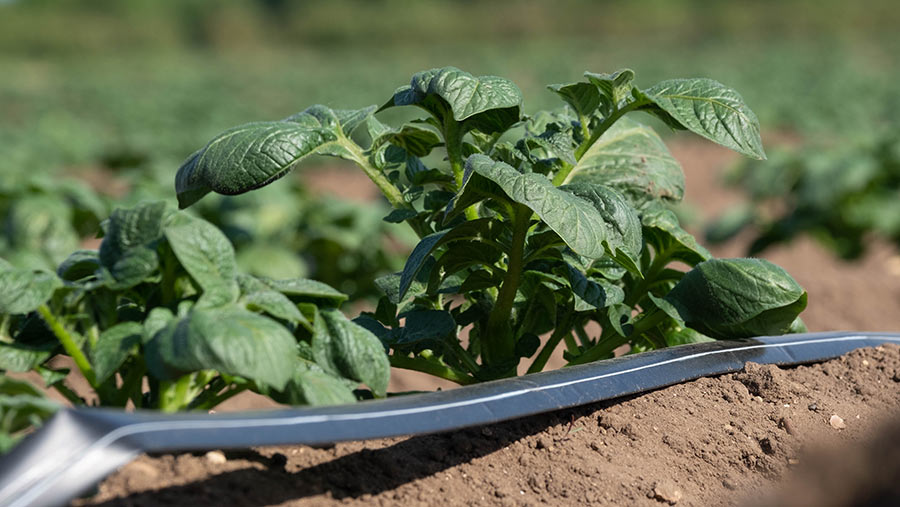Radical changes to potato irrigation practices needed, research shows
 © Tim Scrivener
© Tim Scrivener Radical changes to potato irrigation are required to make more efficient use of water growing the crop, says Katharina Huntenburg, a plant physiologist at Wageningen University.
Her PhD on drought stress in potatoes found in pot tests that tubers grow overnight when sufficiently supplied with water, but under mild drought stress growth immediately stops.
Growth restarts when rewatered, as long as it is soon enough.
See also: How potato variety choice helps with nematode management
During the day water is lost through open stomata via transpiration, she explains.
Her experiments show that some of the water needed in the shoot comes from the tuber as well as the soil. At the same time, carbohydrates are produced through photosynthesis.
At night, the carbohydrates are transported to the tuber for storage, while the stomata close, limiting water loss. During this period, any water available in the soil can go into the tuber to help growth.
“It means consistently high water availability is important for maximum growth,” she says.
While that is very difficult to achieve, it does have implications for irrigation, with water supplies and use under increasing pressure.
“We know that tuber growth stops in dry soils, can recover from rewatering and happens at night,” she says.
Clever watering
“So clever watering would be close to the tuber, which also means close to the roots, be later in the day and very regular.
“I don’t think that is possible with current practices. The most obvious solution is night-time drip irrigation, but that might not be the only one, or be feasible,” she says.
Changing current industrial irrigation practices radically is a big ask, and will require industry collaboration and co-operation, Dr Huntenburg says.
“We need to think together what changes we need to make in the near future to be ready for the longer-term future.”
Katharina Huntenburg was speaking at the annual Cambridge University Potato Growers Research Association conference held at Robinson College, Cambridge.

